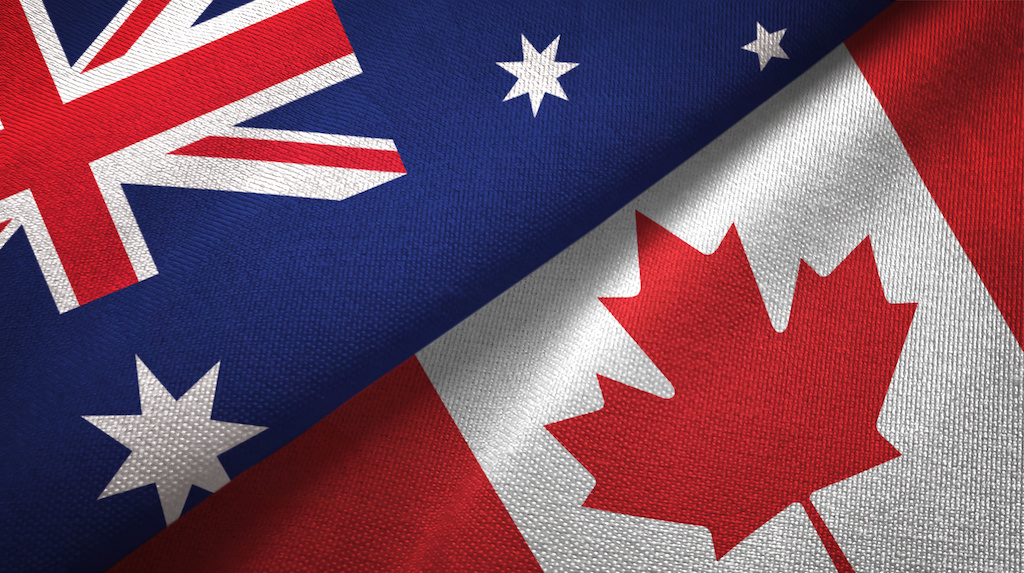Australia vs. Canada: Which Offers Better Post-Study Work Options for African Students?
If you’re an African student planning to study abroad, chances are you’ve already short-listed Australia and Canada. Both countries offer world-class education, welcoming environments, and exciting opportunities after graduation.
But when it comes to what happens after your studies, one question makes all the difference:
👉 Which country offers better post-study work options?
Let’s unpack this together — honestly, clearly, and from the perspective of African students who want more than just a degree.

1. Understanding Post-Study Work Visas
Before we dive in, here’s a quick refresher:
A post-study work visa allows international students to stay back and work legally after completing their studies. It’s a golden bridge between student life and permanent residency.
Both Australia and Canada offer these opportunities — but the details differ significantly.
2. Australia’s Post-Study Work Visa (Subclass 485)
Australia’s Temporary Graduate Visa (Subclass 485) is one of the most flexible post-study work options in the world.
It has two main streams:
Graduate Work Stream: For vocational or diploma holders.
Post-Study Work Stream: For university graduates (Bachelor’s, Master’s, PhD).
Depending on your qualification and study location, you can work in Australia for 2 to 6 years.
Recent updates (as of 2025):
Graduates from regional universities get up to 4–6 years.
Graduates from metro cities typically get 2–4 years.
STEM, health, and IT graduates may receive extended periods.
💡 Bonus: You can switch to skilled or employer-sponsored visas later if you meet the requirements.
3. Canada’s Post-Graduation Work Permit (PGWP)
Canada’s PGWP is similar in spirit but more rigid in duration.
The length depends on your program:
Less than 8 months → Not eligible
8 months to 2 years → Same length as your study program
2 years or more → Up to 3 years of work permit
While Canada’s PGWP is widely respected, it’s non-extendable, meaning once it expires, you must transition to another visa type.
4. Duration Comparison: Who Wins?
| Country | Visa Name | Stay Duration After Study | Extension Possibility |
|---|---|---|---|
| Australia | Temporary Graduate Visa (485) | 2–6 years depending on qualification & location | Yes, through other visa pathways |
| Canada | Post-Graduation Work Permit (PGWP) | 1–3 years depending on study length | No direct extension |
🟢 Verdict: Australia wins here — it offers longer, more flexible durations and regional incentives that benefit students willing to explore beyond big cities.
5. Pathways to Permanent Residency
Both Australia and Canada provide PR pathways, but they operate differently.
Australia
Your post-study work experience can help you qualify for:
Skilled Independent Visa (Subclass 189)
State-Nominated Visa (Subclass 190)
Regional Skilled Visa (Subclass 491)
Australia’s points-based system rewards education, work experience, and regional study.
Canada
Canada’s Express Entry system uses the Comprehensive Ranking System (CRS) — awarding points for education, language, and Canadian work experience.
But with PGWP capped at three years, students often feel pressure to gain work experience quickly before their permit expires.
🟢 Verdict: Australia provides more gradual, flexible PR pathways for students who want to stay long term.
6. Ease of Getting a Job After Graduation
This is where things get interesting.
In both countries, finding a job depends on your industry, city, and networking. But Australia’s graduate employment rate for international students is improving rapidly due to:
Skill shortages in tech, engineering, healthcare, and trades
Strong employer confidence in post-study work visa holders
Simplified migration links between study and work
Canada also has excellent opportunities, but in some regions, oversaturation in certain job sectors (like business or management) can make employment tougher for newcomers.
🟢 Verdict: Both perform well, but Australia currently edges ahead in job placement rates and skill-demand alignment.
7. Cost of Living and Work-Life Balance
Australia generally has higher living costs, especially in cities like Sydney or Melbourne. However, students in regional areas enjoy:
Lower rent
Community support
Extra post-study work years
Canada, while slightly more affordable in some cities, has higher tax rates and can be challenging due to extreme weather conditions.
🟡 Verdict: Tie. Australia offers more warmth (literally and culturally), while Canada offers slightly cheaper living costs.
8. Opportunities for African Graduates
Australia’s migration system specifically values African professionals in high-demand sectors like:
Nursing & healthcare
Engineering & construction
ICT & digital innovation
Education
Additionally, the shared language (English) and growing African diaspora in Australia make adaptation easier compared to Canada’s mix of English and French requirements.
🌍 Africans feel seen, supported, and successful in Australia.
9. The Afrovo Perspective
At Afrovo, we’ve seen hundreds of African students start their journey in Australia and transition into meaningful careers — many even achieving permanent residency within a few years.
Our team doesn’t just help you apply — we strategically plan your pathway, ensuring that every decision (from your course choice to your visa stream) sets you up for long-term success.
10. The Final Verdict
| Factor | Australia | Canada |
|---|---|---|
| Post-Study Visa Duration | ✅ Longer (up to 6 years) | ❌ Shorter (max 3 years) |
| Flexibility for PR | ✅ High | ⚠️ Moderate |
| Job Market Alignment | ✅ Strong | ⚠️ Competitive |
| Regional Incentives | ✅ Yes | ❌ Limited |
| Language Advantage | ✅ English only | ⚠️ English/French mix |
| Cost of Living | ⚠️ Moderate-High | ✅ Slightly Lower |
🌟 Winner: Australia — especially for African students seeking long-term stability, career growth, and PR opportunities.
Choosing between Australia and Canada isn’t just about studying abroad — it’s about shaping your future.
If you’re looking for a destination that rewards skill, ambition, and effort, Australia offers the clearest, most flexible route for African students to thrive after graduation.
Achieve Your Migration Journey Today with Afrovo.
We are passionate about helping Africans unlock global opportunities.





